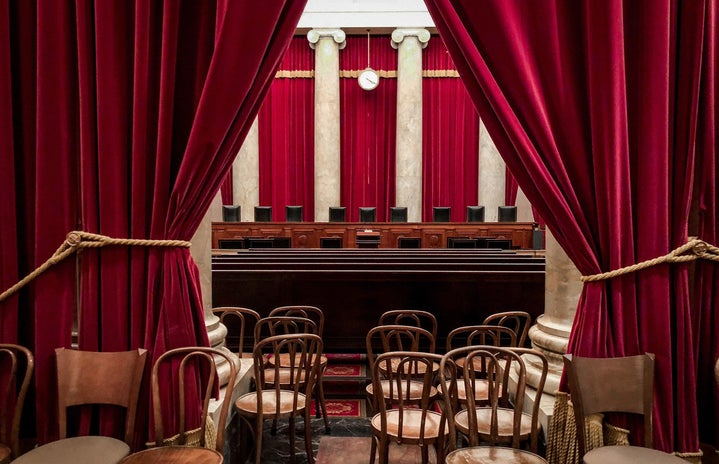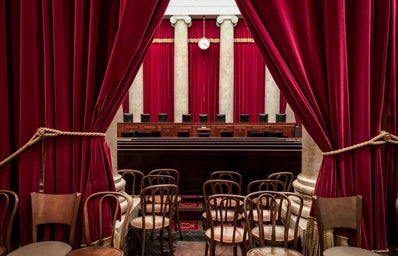Oscar Wilde was a famous writer, most prominently known for his novel, The Picture of Dorian Gray and his play, The Importance of Being Earnest. These works were put under scrutiny in his trials, particularly The Picture of Dorian Gray. When asked about a reference to possible homosexual attraction in the book, Wilde simply noted that the character was attracted to a beautiful personality, not taking care in noting the genders of these characters. Personally, I have been drawn to Wilde as a member of the aesthetic movement as well as his beautiful pieces of writing. However, I had no idea of the three trials he underwent that eventually led him into jail. Gross Indecency was a highlighted look into these trials that opened my eyes to the injustices Wilde faced in his day for being gay. While Wilde certainly had his vices, generally going after much younger men than he, I would argue that the only “gross indecency” was the one he withstood by being put in prison for loving those of the same gender.
This story of Oscar Wilde is one that bears little to the imagination. He went to trial in 1895, suing the Marquess of Queensbury for criminal libel, as the marquess had left a note at Wilde’s club with the phrase “posing somdomite” on it. For reference, “sodomite” (the marquess misspelled) means someone who engages in sodomy, which is the act of oral or anal copulation, usually with someone of the same sex. The two went on to have three trials, the last one convicting Oscar as guilty. The play uses transcripts from the actual trials as well as letters between Wilde and Lord Alfred Douglas, the son of the Marquess of Queensbury, and quotes from Wilde’s books and plays to convey the story. Through the enchanting words of Wilde, the audience gets brought back into England, 1890s, and feels utter sympathy for Wilde and his trials. This play is especially relevant in today’s society, with LGBTQ+ rights constantly under attack. It gives voice to those who are persecuted for simply loving others.
Wilde noted in his play, An Ideal Husband, “Weak? Oh, I am sick of hearing that phrase. Sick of using it about others. Weak? Do you really think, that it is weakness that yields to temptation? I tell you that there are terrible temptations that it requires strength, strength and courage, to yield to. To stake all one’s life on a single moment, to risk everything on one throw, whether the stake be power or pleasure, I care not-there is no weakness in that. There is a horrible, terrible courage. I had that courage.” This quote is mentioned in Gross Indecency as part of his trial. I believe this to be an incredibly powerful and inspiring message to those in the LGBTQ+ community, as it was used in reference to submitting to his emotions even in a time when it was less acceptable than it is today. He had the courage to follow his heart, even though he knew it could lead to prison. This theme is strong throughout Gross Indecency, as Wilde pleads not guilty in all circumstances, as he believes he has done no wrong. The court, however, was not on his side and seemed to put his art and personal affairs on trial rather than the criminal libel he was originally suing the Marquess of Queensbury for. Wilde hardly wrote after his time in prison and turned bitter towards his lover, Lord Alfred Douglas. This was not the ending he should have had, and goes to show how not accepting others can have very real, negative consequences on their lives.
In speaking with the director of the show, Dr. Bryan Vandevender, I wanted to get a closer look into the motivations for directing this play, historical background, and a conclusion on if Wilde really was a leader of the gay rights movement. Professor Vandevender had several insights that I believe are important to address. When asked why he wanted to direct this particular production, Professor Vandevender said that this was one of his favorite questions to answer. He went into detail about how in the Student Advisory Committee, where students have a voice in the productions in the theatre department, they always ask the questions of why this play, why now- and they want to have a good reason for it. This show in particular was timely last year when choosing the productions for this season, and has become even more timely, since there has been a lot of recent legislation against the LGBTQ+ community- particularly in the states of Florida and Texas, with the Don’t Say Gay laws and other laws targeting transgender persons. Dr. Vandevender saw parallels between these movements in terms of how Gross Indecency focuses on the trials where the ultimate goal is to criminalize sexuality.
The historical background of the time was fleshed out a bit in the play itself, however, there were some things left out that were of note in prior research Dr. Vandevender and his Introduction to Dramaturgy class did. This play, for one, is only a snippet of Wilde’s life as well as his and Sir Alfred Douglas’ relationship. Gross Indecency portrays their relationship as always tender, whereas in reality it was pretty volatile. Wilde identified with Uranian poets, a Greek tradition where a poet takes younger students under their wing and uses them as a vessel for their knowledge. This came up in questioning of if Wilde was simply grooming his lovers. Lastly, on the topic of Wilde being an asset to the gay rights movement, much of his influence was on accident. He had to stand up for queer rights for the mere fact that he was on trial for it. While on trial, Wilde never confessed to doing anything wrong because he didn’t believe he was doing anything wrong. By refusing to accept his sexuality being characterized as dangerous, he was a spearhead in the gay rights movement, but again, only doing this because he had to. Overall, it is difficult to say whether or not I’d want to be friends with Oscar Wilde, but nonetheless, he is still an incredibly important literary and LGBTQ+ figure, (purposefully or not), in history.


